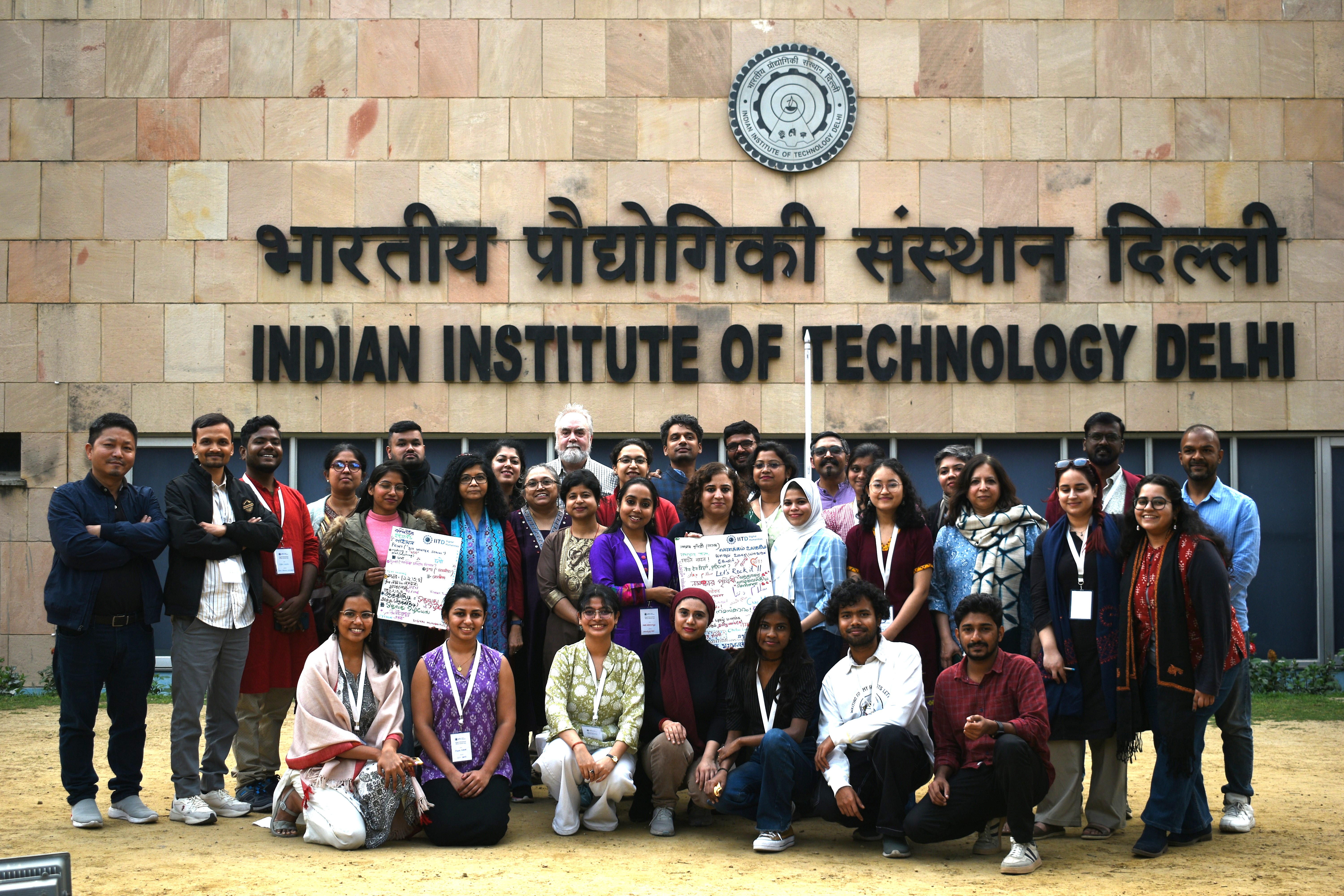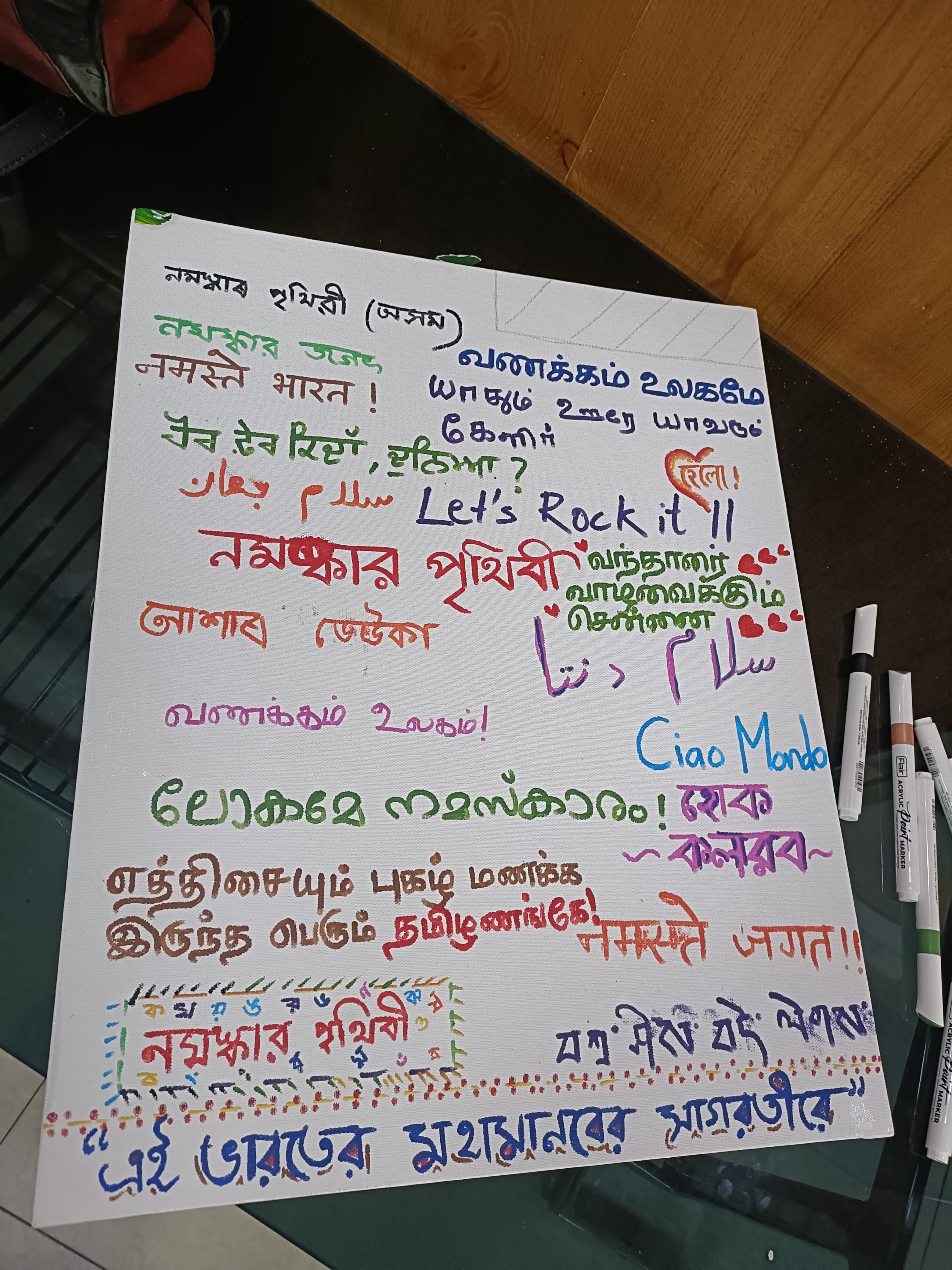Rewiring the Humanities: Notes from the DH Winter School 2025
The Digital Humanities Winter School, a unique initiative by the Department of Humanities and Social Sciences, Indian Institute of Technology Delhi (IIT Delhi), was held in February 2025. Its primary goal was to bridge the gap for scholars and students from the humanities, social sciences, and other non-STEM disciplines in India, providing them with a hands-on introduction to computational tools and digital scholarship methods. This introduction aimed to foster algorithmic thinking, conceptualize data-centric research projects, encourage collaborative ventures, and instill critical approaches toward algorithms. The DH Winter School, with its promise of a low learning curve, was designed to boost the confidence of participants who came with little or no exposure to digital applications or programming. By addressing the limited opportunities for students of the humanities and social sciences in India to learn these methods, the DH Winter School aimed to impact the academic landscape significantly.
A massive interest
This edition of the DH Winter School focused on computational analysis of texts. The call for applications was met with a massive response. Over 550 applications were received from students and faculty members across India. Applicants were required to identify two texts they would want to analyze using computational tools - one in English and the other in an Indian language. Given that this was an in-person and hands-on Winter School supported by a very limited budget, the cohort size was restricted to 25. The participants invited to register for the Winter School were spread across various levels of experience - senior faculty members, doctoral researchers, masters students, librarians, and archivists. They were from diverse disciplines like Literature, Politics, History, Sociology, Journalism, Management, and Library science. Representing ten different Indian states and ten Indian languages, and hailing from both metropolitan and non-metropolitan locations the cohort brought into the room a cross-section of Indian academia.
Online Python Bootcamp
The in-person phase of the DH Winter School was preceded by an online Python Bootcamp conducted by Arjun Ghosh. During the online bootcamp participants were introduced to variables, expressions, string operations, conditional execution, functions, loops, and data structures like lists, dictionaries, and tuples. These sessions ensured that participants received ample time and opportunity to understand concepts and clarify doubts. The online Python Bootcamp was followed-up by daily tutorials during the in-person Winter School week and two additional sessions on file handling and data acquisition using web APIs. Since the participants had already internalized certain programming concepts, it helped them appreciate the computational tools they learned during the in-person Winter School.
Focus on Computational Analysis of Text
The in-person sessions of the DH Winter School were held at the IIT Delhi campus in south New Delhi between 17-22 February 2025. The focus on Text Analysis was led by Geoffrey Rockwell and Shanmugapriya T. Together they conducted eleven sessions spread across six days to introduce participants to text and data mining concepts. Shanmugapriya used an innovative paper and pen method to help participants understand concepts like topic modeling and visualization. Geoffrey Rockwell took the participants through the suite of Voyant Tools, including word frequency analysis, keyword in context, collocation, principal component analysis, and correspondence analysis.
Perspectives on Computational Analysis
In the other sessions, Jajwalya Karajgikar emphasized the central role of libraries in enabling data science research and pedagogy. Sanil V. and Naveen Thayyil spoke on the politics of digital art and data aggregation. Vinayak Dasgupta conducted two hands-on workshops on data cleaning using OpenRefine. Rohan Chauhan spoke of the challenges in developing OCR technologies for Indian language scripts.
During the week, Geoffrey Rockwell delivered an Institute Lecture on the opportunities and limitations of the Responsible Artificial Intelligence approach to AI ethics. On the final day, the Winter School participants had the opportunity to present their project ideas and receive feedback from the Winter School faculty and co-participants.
The event ended with a Round Table discussion on “Digital Humanities@India: Opportunity and Challenges in the Time of AI, “ led by Santanu Chaudhury.
Celebrating World Mother Language Day
The week of the DH Winter School saw the observance of World Mother Language Day on 21 February. The Winter School emphasized the need to develop computational text analysis methods for the Indian languages. The participants had chosen Indian language texts for their analysis. Many of these texts existed in hardcopy or image PDF formats. These were scanned, and then machine-readable text was obtained using ‘Lipikar’ - the state-of-the-art OCR engine for the Indian languages. The participants uploaded the text thus obtained onto Voyant tools for analysis.
Future Editions
The considerable interest around the DH Winter School speaks of the eagerness of humanities and social sciences scholars to learn new methods and approaches to research in their fields. This is more pertinent as the world around us sees digital transformation at a frantic pace. Hence, we can look forward to more editions of the DH Winter School. Future editions may focus on other DH methods like spatial analysis, text encoding, audio-visual analysis, etc.
Participant Feedback
The impact of the DH Winter School is best captured through the voices of its participants:
I thoroughly enjoyed the Online Python Bootcamp. As it was my first attempt at coding, I believe I have understood well and would be able to try them out myself… Much needed for humanities students.
Priya Bose
the winter school it got me interested in DH at a much deeper level…. It opened multiple horizons for me which I am keen on exploring.
Pritha Chakraborty
The Winter School introduced me to text mining, computational linguistics, expanding my understanding of how digital archives can be analyzed beyond preservation.
Muaad Muhammed Ameen
I started with an idea about digital humanities as a way to analyse texts and was essentially looking for methods. Post the winter school, I have started looking at digital humanities as a necessary aspect of humanities studies in the post AI world.
Tannu Sharma
I always assumed DH to be a set of tools to be used to aid our research. The workshop changed my limited perception of the domain. It made be realise the essential intervention humanities can and has to provide in machine and deep learning.
Angarika Batsah
The design of the curriculum for the bootcamp was very fundamental in its approach so that anyone with zero knowledge in python programming can start learning it…. gave us the opportunity to learn what computational thinking is.
Beda Prakash Dutta

